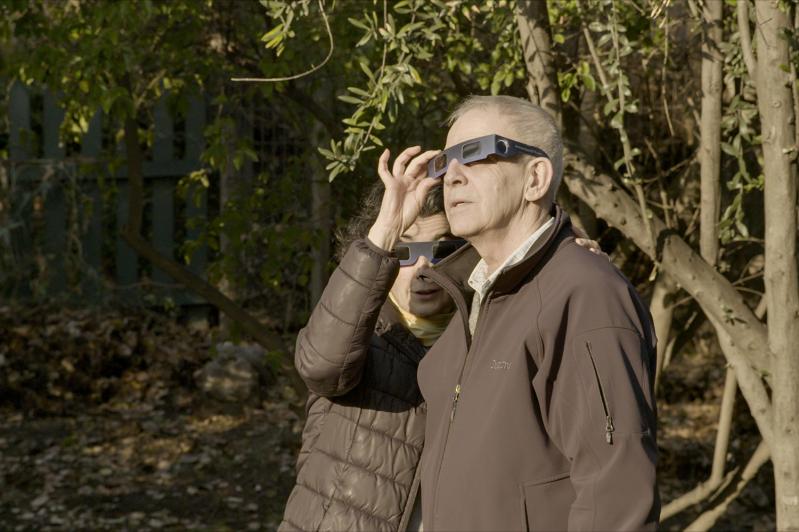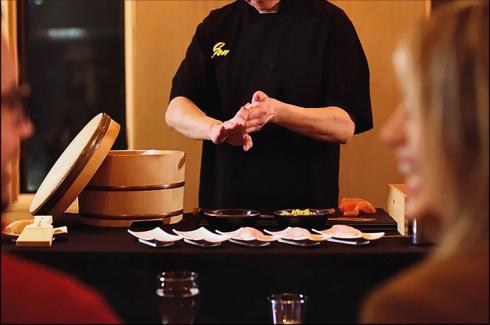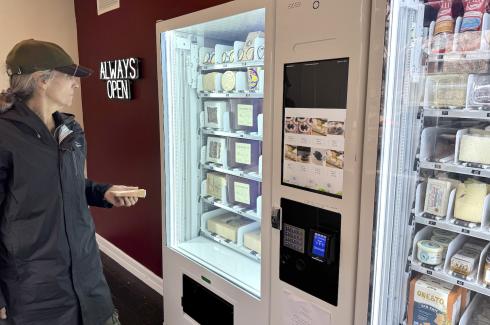In a touching scene in "The Eternal Memory," a Chilean documentary full of them, Paulina Urrutia, a famous actress and former Minister of Culture, asks her husband, Augusto Gongora, a prominent journalist, how long they were together before they married.
After some confusion, he says, "Let's do it together. Because if I do it on my own, with my Alzheimer's, I'll make a mess of it." He then cracks up.
Directed by Maite Alberdi, "The Eternal Memory," which won the grand jury prize for world cinema documentary at Sundance 2023, will launch this year's HamptonsFilm's SummerDocs series on Friday.
That scene encapsulates so much about the film: the couple's intimacy, his sense of humor, and her unqualified commitment to the role of caregiver, not out of obligation, but love.
The film opens with Augusto in bed. Paulina comes into the frame and turns on the bedside light. He asks what are they doing there. He knows he is Augusto Gongora, but he doesn't know who she is. When she says, "Pauli," he laughs. Then she says she is going to surprise him because "I'm someone that has come here to help you remember . . . who Augusto Gongora was."
Cut to a young Augusto on a television screen, microphone in hand, reporting on the brutal effects of the Pinochet dictatorship, which took power in Chile in 1973 in a military coup that overthrew the socialist government of Salvador Allende.
"The Eternal Memory" weaves newsreel footage, much of it filmed clandestinely during the Pinochet regime by Teleanalisis, which Augusto founded in 1984; home movies of Augusto and Paulina, their friends, and his children, and film shot by Ms. Alberdi and her team, of the couple at various points as his condition worsened.
During Covid, when the filmmakers couldn't visit the couple, Paulina set up the camera and then stepped into the scene so their interaction could be recorded.
There is neither voiceover nor narrative explanation, but the film is so adroitly edited that the complexity of the couple's situation and the larger cultural and political context that frames it are clear.
In an interview provided by MTV, the distributor, Ms. Alberdi explained that while giving a presentation at a university where Paulina was head of the theater faculty, she saw Augusto in the room. "He already had Alzheimer's by that point, and I saw how she made it part of her work and her life, he wasn't just sitting at home . . . I had never seen a person with dementia so integrated into a caregiver's life."
What gives the film extraordinary depth is that it focuses not only on Augusto's memory and the memories shared by the couple, but also the idea of collective memory, specifically the need of Chileans to, as Ms. Alberdi put it, "reconstitute our emotional memory, precisely because" the years of the dictatorship "have been so hard, so traumatic, so full of pain."
There are intimate moments of the couple at home -- Paulina shaving him after he showers, the two of them exercising on adjacent Pilates machines and then slow-dancing in each others' arms. In another, after walking together through a stage set, he watches her perform a play that alludes to life under Pinochet.
During an eclipse, she warns him not to look at the sun without the dark glasses they have, because the sun's rays might affect his brain. "I don't have a brain, I already lost it," he says, laughing.
In one extended sequence, he talks about what he calls the "alternative video" he shot during the regime, and says they weren't brave, they were afraid. As he and Paulina watch some of the footage of protests together, he is subdued but quite lucid, eventually progressing from despair to joy as he exclaims, "We won, we won."
Asked whether any situation was off limits, Ms. Alberdi said, "Augusto was the one who convinced Paulina to make this film. When I spoke to them both about a documentary, she had questions, and he told us, 'I have no problem showing my fragility, I've made so many documentaries, why wouldn't I want to be filmed in this situation.' "
"We needed to be a small team because we had to respect their privacy, and not be intrusive," said Ms. Alberdi. "And the most challenging thing was the montage . . . This memory puzzle where the pieces intersect and relate and move you from one side to the other, without a traditional narrative, but rather sensory and affective, was the most difficult to execute."
The film will be screened at 7 p.m. at East Hampton Cinema. It will be followed by a conversation between Ms. Urrutia and David Nugent, HamptonsFilm's artistic director. Tickets are $35.




